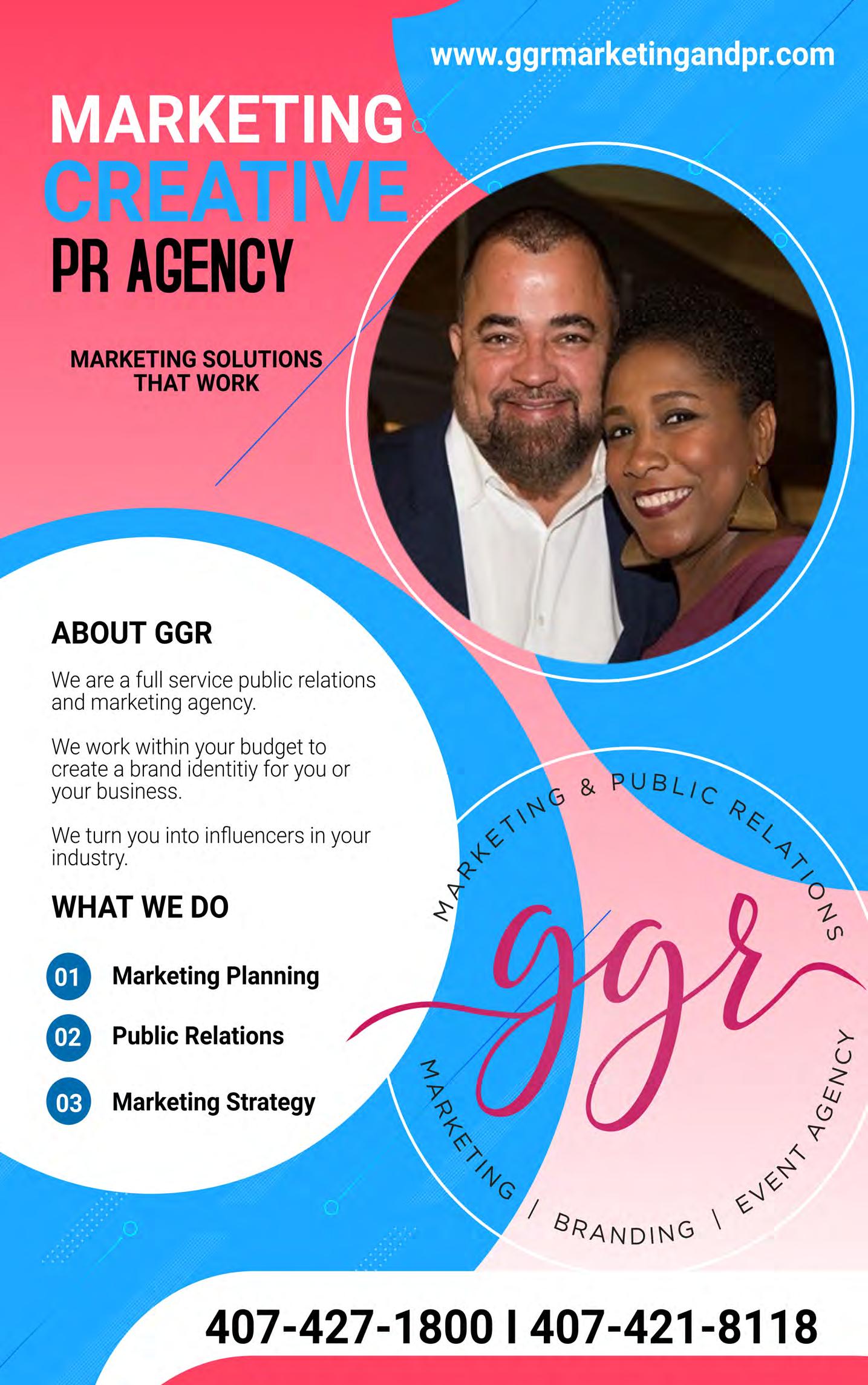Warren Dietel...the story and legacy behind Puff & Stuff Religious Diversity
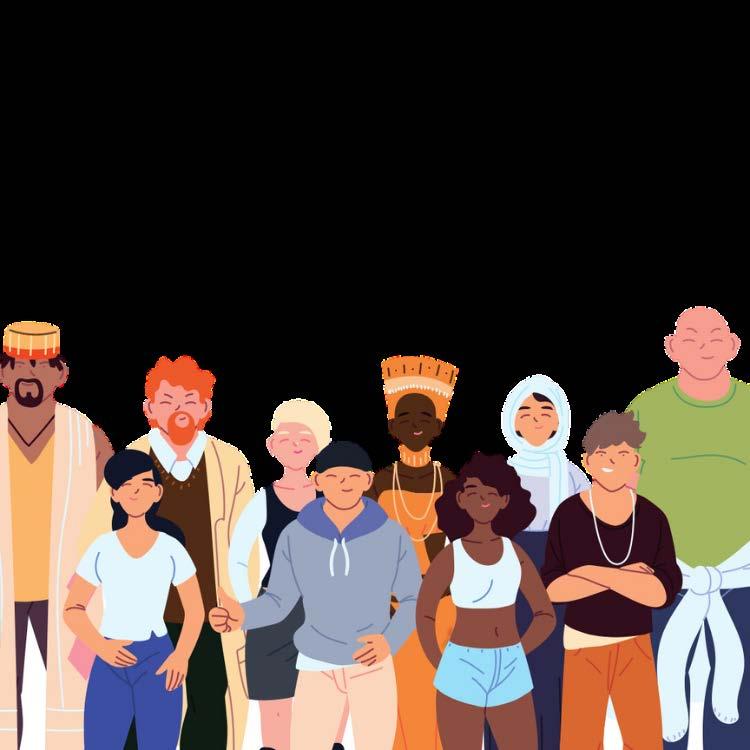

For Christians, this time marks the season of Lent, which lasts for 40 days and leads up to the celebration of Easter. Lent is a period of reflection and repentance, where Christians engage in fasting and prayer to prepare for the celebration of the resurrection of Jesus Christ.
In Hinduism, this time marks the celebration of Holi, the festival of colors. Holi signifies the victory of good over evil and marks the arrival of spring. People come together to play with colors, dance, and enjoy traditional sweets and delicacies.

In Islam, this time marks the holy month of Ramadan, where Muslims fast from dawn till dusk, and engage in prayer and reflection. It is a time for self-discipline, charity, and strengthening one's relationship with God. The month of Ramadan culminates in the celebration of Eid al-Fitr, which marks the end of the fasting period.
For Rastafarians, this time marks the celebration of the birthday of Haile Selassie I, a revered figure in their religion. It is a time for spiritual reflection, music, and celebration. Rastafarians believe that Haile Selassie I is the messiah and a symbol of peace, love, and unity.
Overall, this specific time holds great significance, representing a period of reflection, celebration, and strengthening one's relationship with God or the divine.
Warren Dietel is a successful businessman and entrepreneur who has made a name for himself in the hospitality industry. As the owner of Puff & Stuff Orlando, a catering and event planning company, he has built a reputation for excellence in service, quality, and innovation.
Dietel began his career in the hospitality industry over 30 years ago, working in restaurants and hotels before starting his own catering company. He purchased Puff & Stuff Orlando in 2003 from his parents, who, along with their close friends, (Yuklan Laing and Gwyneth Pogson), originally founded Puff and Stuff Bakery in 1971. His parents migrated from Trinidad in 1978 and started Puff and Stuff in 1980.
Dietel, under his leadership and with a commitment to personalized service and exceptional cuisine, he has grown to the company to become one of the top catering and event planning
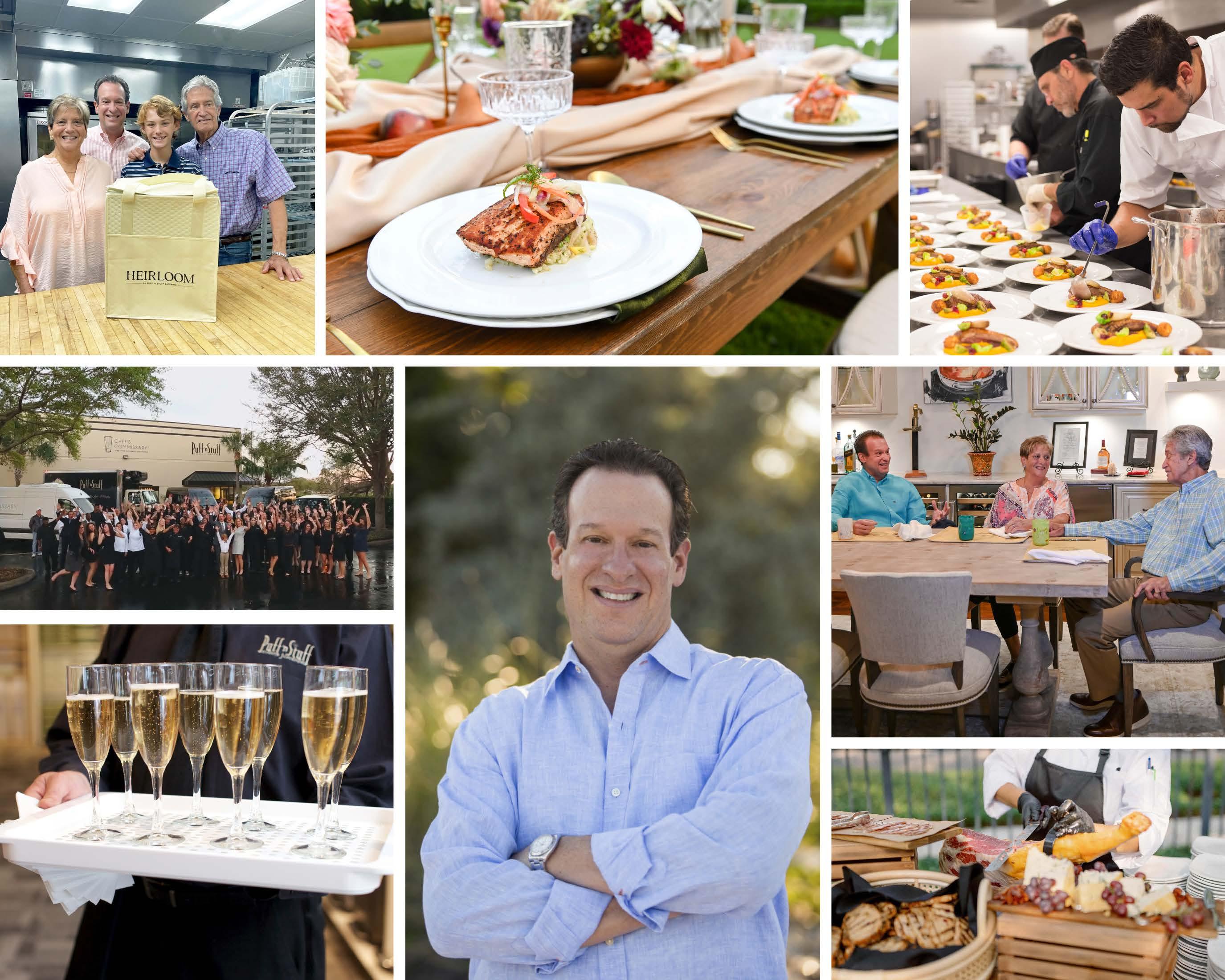
companies in Florida, serving clients throughout the state. One of the things that sets Puff & Stuff Orlando apart from its competitors is its commitment to using locally sourced, sustainable ingredients whenever possible. Dietel believes that using fresh, high-quality ingredients is the key to creating delicious, memorable meals that clients will love.He also understands the importance of sustainability and works to minimize the company's impact on the environment by using eco-friendly practices.
In addition to its focus on sustainability, Puff & Stuff Orlando is also known for its innovative approach to catering and event planning. Dietel and his team are constantly exploring new trends and ideas in the industry, experimenting with new flavors, presentation styles, and service models to create unique and unforgettable experiences for clients.
Continued on Page 8
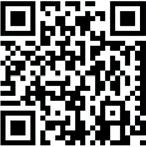
FREE Your Passport to the Caribbean American Community Mar/Apr 2023 1 www.caribbeanamericanpassport.com

www.caribbeanamericanpassport.com 2
Guenet Gittens-Roberts Owner/Publisher/Editor

LIFEST Y LE
Cultural Diversity and the Celebration of Caribbean Culture
Samuel J. Roberts Owner/Publisher/Editor
Caribbean culture is known for its vibrant and colorful celebrations, with one of the most famous being Carnival. Carnival is a celebration of Caribbean culture that is held in many countries across the world, including Trinidad and Tobago, Brazil, and the United States. It is a time of joy, unity, and cultural diversity, where people of all backgrounds come together to celebrate the music, food, and traditions of the Caribbean.
One of the most notable aspects of Carnival is the elaborate costumes worn by participants. These costumes are brightly colored, often adorned with feathers and sequins, and are designed to reflect the rich history and culture of the Caribbean. They are a symbol of pride for Caribbean people, representing the beauty and creativity of their culture.
Music is also a central part of Carnival celebrations, with the pulsating rhythms of calypso, soca, and reggae filling the streets. These musical genres originated in the Caribbean and have since spread to other parts of the world, becoming an important part of the global music scene. During Carnival, people dance to these rhythms, letting go of their inhibitions and embracing the joy and energy of the music.
Food is another important aspect of Caribbean culture that is celebrated during Carnival. Traditional dishes such as jerk chicken, roti, and ackee and saltfish are enjoyed by participants and spectators alike. These dishes are a reflection of the diverse culinary traditions of the Caribbean, which have been influenced by African, European, and Asian cultures.
Carnival is also a time of cultural diversity, as people from all backgrounds come together to celebrate Caribbean culture. It is an inclusive celebration that welcomes people of all races, ethnicities, and nationalities. This diversity is reflected in the costumes, music, and food of Carnival, which draw from a variety of cultural traditions.
Furthermore, Carnival is a celebration of unity and community. It brings people together, creating a sense of belonging and togetherness. It is a time when people put aside their differences and come together to celebrate the rich cultural heritage of the Caribbean.
While Carnival is a celebration of Caribbean culture, it has also had an impact beyond the Caribbean region. Carnival celebrations are now held in many countries across the world, including the United States, Canada, and Europe.
These celebrations provide an opportunity for people from different parts of the world to come together and experience the joy and energy of Caribbean culture.
Carnival is a celebration of Caribbean culture that highlights the rich history, traditions, and diversity of the region. It is a time of joy, unity, and cultural exchange, where people of all backgrounds can come together to celebrate the music, food, and traditions of the Caribbean. Through its colorful costumes, pulsating rhythms, and diverse culinary traditions, Carnival has become an important part of the global cultural landscape, reflecting the beauty and creativity of Caribbean culture.
1969 Alafaya Trail • Orlando, FL 32828 Office: 407-427-1800 Fax: 407-386-7925
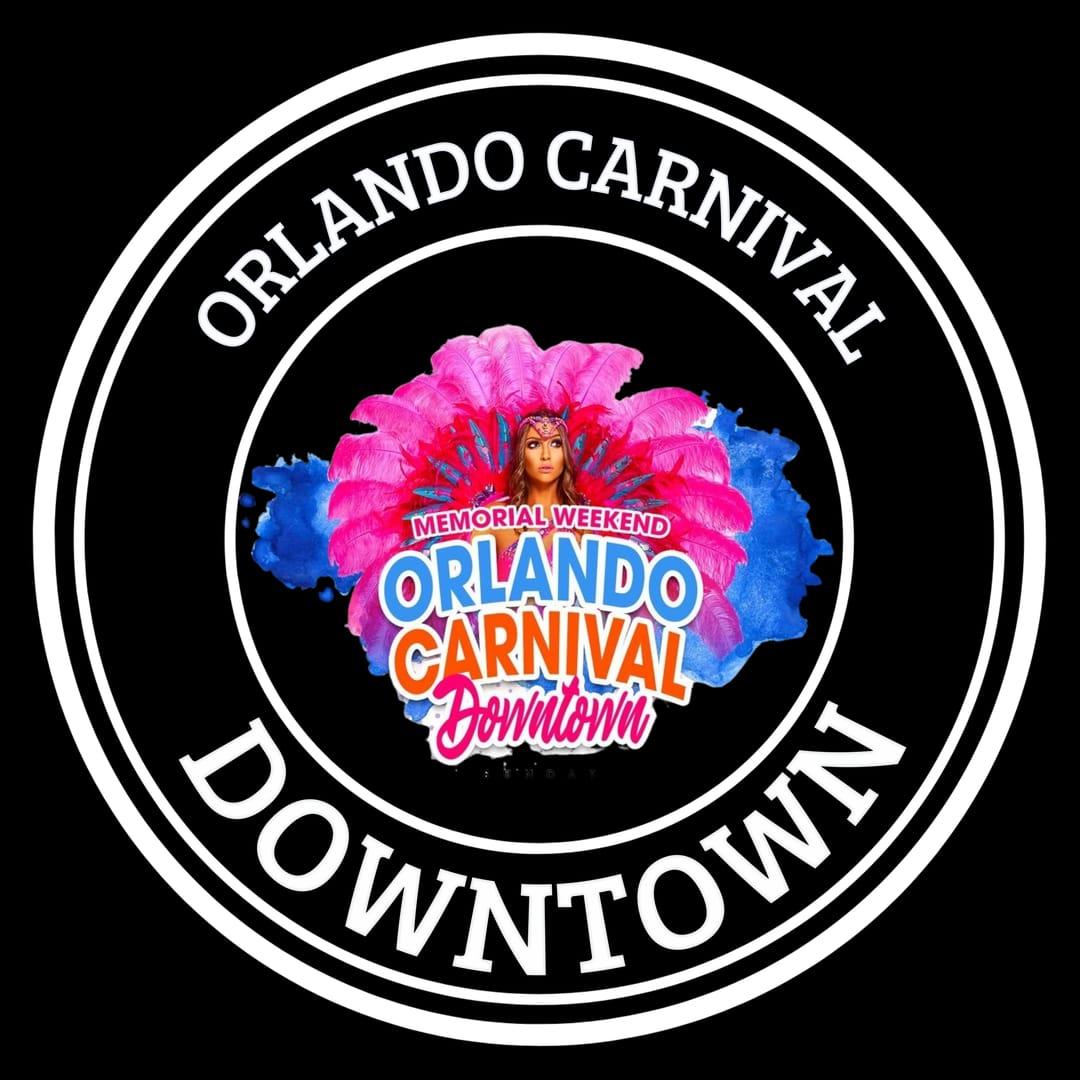
Toll Free: 877-220-8315
For Media Information email: Publisher: sroberts@caribbeanamericanpassport.com Info: .Info@caribbeanamericanpassport.com
Should you desire to review past copies of the publication go to http:// caribbeanamericanpassport.com and click on the 'Print Archive'.
Publisher&Editor...................................................................................Sam Roberts
Publisher ............................................................................. Guenet Gittens-Roberts
Editor&ContributingWriter ....Aleia Roberts
Contributing Writers: Tony Dyal
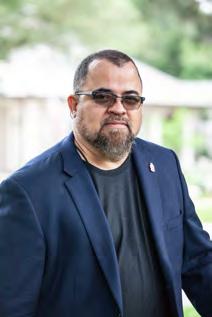
Contributing Photographers King Visual
Dillia Castillo
Central Florida Distribution......................................................... .Danielle Browne
South Florida Distribution.............................................................Norman Williams

NorthFlorida Distribution Kadeem Roberts
Tampa Distribution...................................................................................Julian Pina
www.caribbeanamericanpassport.com
3
6 GGR Marketing
Public Relations. All rights
Copyright (C) 201
&
reserved.
Women's Health Month
By Staff Writer
Women's Health Month is an annual observance that takes
place every May. The month is dedicated to raising awareness about the unique health challenges faced by women and encouraging women to take an active role in their health and wellness.
The goal of Women's Health Month is to promote healthy behaviors and empower women to make informed decisions about their health. By focusing on preventative care and early detection, Women's Health Month aims to reduce the incidence of chronic diseases, such as heart disease, cancer, and diabetes, which are leading causes of death among women.
One of the primary objectives of Women's Health Month is to promote regular health screenings. Regular check-ups and screenings are essential for maintaining good health and detecting potential health problems early on. Women should talk to their healthcare providers about the appropriate screening tests for their age and health status, including mammograms, Pap smears, and bone density tests.
Another key aspect of Women's Health Month is encouraging women to make healthy lifestyle choices. This includes eating a balanced diet, staying physically active, getting enough sleep, managing stress, and avoiding unhealthy habits such as smoking and excessive drinking. These behaviors not only improve overall health but can also reduce the risk of chronic diseases.
In addition to physical health, Women's Health Month also

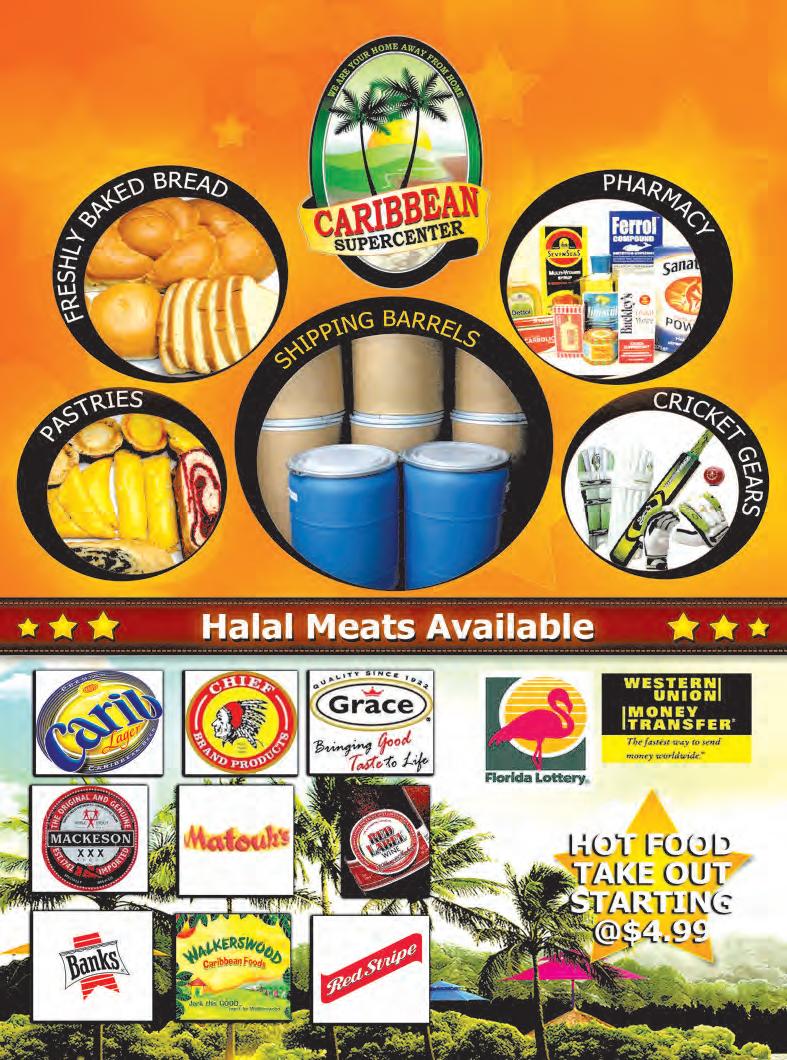
recognizes the importance of mental health. Mental health issues, such as anxiety and depression, are common amongwomen and can have a significant impact on overall well-being. Women should prioritize self-care and seek help when needed to address mental health concerns.
Women's Health Month also aims to address healthcare disparities and promote health equity for all women. Women of color and those from marginalized communities often face barriers to accessing healthcare and experience higher rates of certain health conditions. Women's Health Month highlights the importance of addressing these disparities and promoting equal access to quality healthcare for all women.
Finally, Women's Health Month serves as a reminder that women's health is not just an individual concern but a public health issue. By improving the health of women, we can improve the health of families, communities, and society as a whole.
In conclusion, Women's Health Month is an important annual observance that aims to raise awareness about women's health issues and promote healthy behaviors. By focusing on preventative care, healthy lifestyle choices, and mental health, Women's Health Month encourages women to take an active role in their health and well-being. It also highlights the importance of addressing healthcare disparities and promoting health equity for all women. By prioritizing women's health, we can improve the health of individuals, families, and communities and create a healthier, more equitable society.
4 www.caribbeanamericanpassport.com
Research on Cannabis Use and Heart Health Creates More Questions Than Answers for Some
Editor’s note: This commentary is provided by the Medical Marijuana Education and Research Initiative (MMERI) of Florida A&M University.
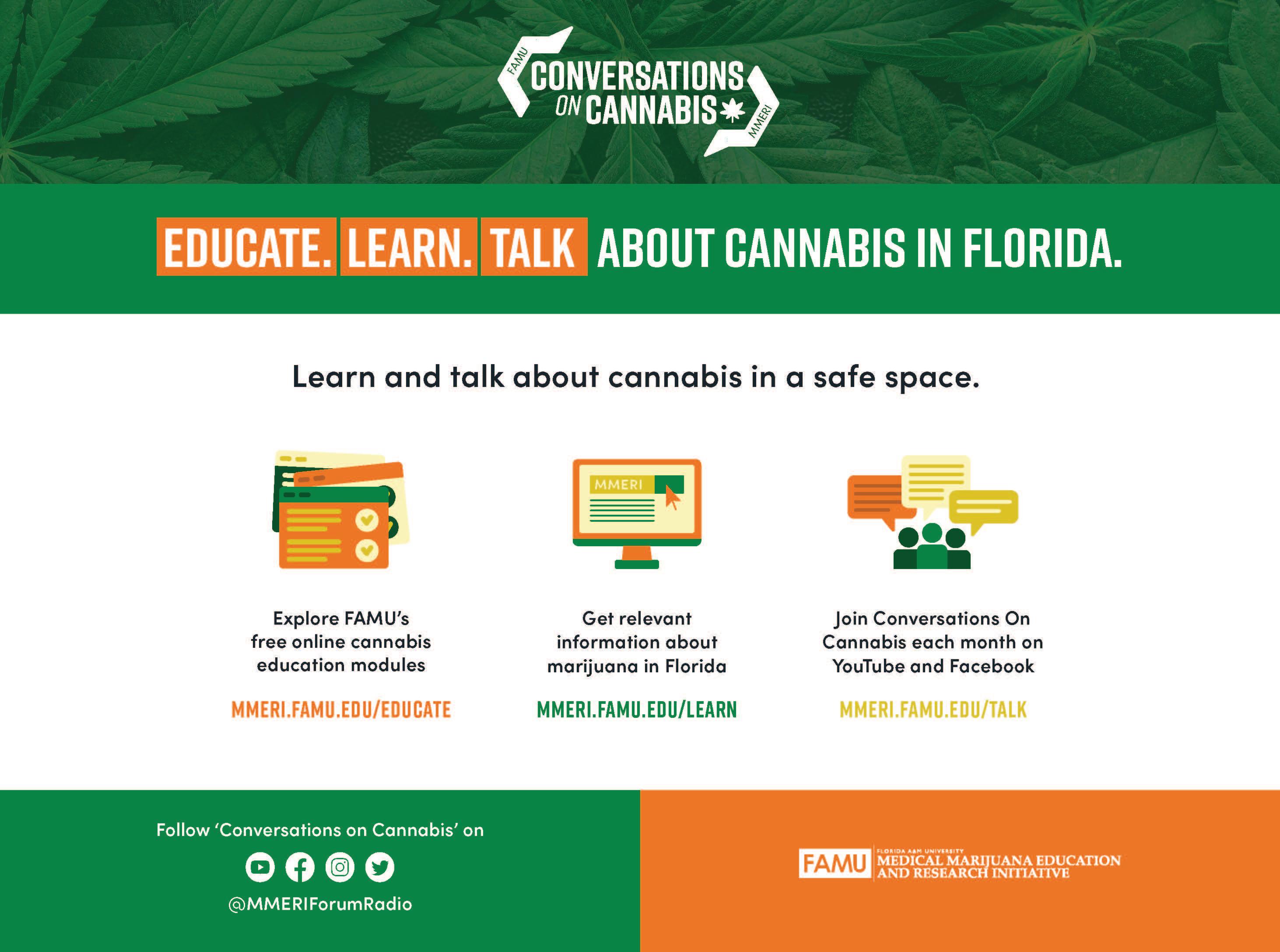
When the American Heart Association (AHA) released a report drawing a link between recreational marijuana use and “an increased risk of heart attacks, heart failure, and a heart rhythm disorder called atrial fibrillation,” cardiac health expert Dr. Annabelle Manalo-Morgan was intrigued. While the AHA statement may sound alarming, she says the studies it's based on create more questions than answers.
“I think it's important to note that the research that we are doing in cannabis is observational. The safety and efficacy that we really want to dive into, we're not able to do because of the worldwide legality issues,” said Dr. Manalo-Morgan, who has a doctorate in cell and development biology with a focus in cardio-oncology. "And, of course, the American Heart Association and the Centers for Disease Control do address that we’re not able to perform the proper research that can really tell us the true story of how cannabis use, and especially daily cannabis use, is contributing to heart disease.”
She says since 2012 emergency rooms have been seeing more and more cannabis users under the age of 50 suffering from heart attacks. However, she questions whether other causes could be to blame for these health crises.
Is it in their genes? Are they overweight? Do they also use alcohol? What other drugs? Was it maybe a result of drug interactions?" she says, adding that street-grade marijuana could be laced with poison or another harmful ingredient like fentanyl.
As an entrepreneur focused on pharmaceutical innovation and research on medical cannabis, Dr. Manalo-Morgan is involved in multiple clinical trials around the globe. She says more scientific studies on cannabis use and heart health need to be done.
"So, there's a lot of gaps that need to be filled before we can say, yes, for sure, cannabis use is harmful to the heart. I think what we do have is an opportunity to maybe get more funding and open the door for doing more research because we are seeing a correlation of some regard there", she explained.
Visit https://bit.ly/MarijuanaUseHeartHealth to watch MMERI’s Conversations on Cannabis Virtual Forum featuring Dr. Annabelle Manalo-Morgan, a cell and developmental biologist, explaining the impact of cannabis use on your heart health.
www.caribbeanamericanpassport.com 5
What's missing in our Healthcare system - Mental Health!
he healthcare system in the United States is often praised for its cutting-edge medical technology and highly trained healthcare professionals. However, despite its many strengths, one area where the system falls short is in mental health care.

Mental health disorders are highly prevalent in the United States, affecting approximately one in five adults each year. Yet, mental health care is often stigmatized and marginalized, leading to inadequate resources and care for those who need it most.
One of the main issues in the healthcare system is the lack of access to mental health care services. Many people are unable to access mental health care due to a shortage of mental health professionals, long wait times, and high costs. This can result in people not receiving the care they need, leading to a worsening of their condition and decreased quality of life.
Furthermore, the current healthcare system often prioritizes physical health over mental health, with mental health care often considered secondary to physical care. This has led to a lack of integration between physical and mental health care services, with many patients receiving suboptimal care due to this disconnect.
Another issue in the healthcare system is the lack of emphasis on preventative measures for mental health. While screening and early intervention programs exist, they are often not widely available or accessible. This has led to many individuals going undiagnosed and untreated until their condition reaches a critical stage.
Additionally, the current healthcare system does not adequately address the unique needs of different populations. For example, individuals from marginalized communities such as those with low-income, people of color, and the LGBTQ+ community, are at a higher risk of mental health disorders, yet often have the least access to care.
There is also a lack of focus on mental health care within primary care settings. Many individuals visit their primary care physician for physical ailments but may also be experiencing symptoms of mental illness. However, primary care physicians are often ill-equipped to diagnose and treat mental health disorders, leading to inadequate care for patients.
To address these issues, several actions need to be taken. First, mental health care must be integrated with primary care to ensure that patients receive holistic care that addresses their physical and mental health needs. This can be achieved through training healthcare professionals to identify and treat mental health disorders, and integrating mental health care into routine primary care practices.
Second, there needs to be a greater focus on preventative measures for mental health, including early intervention programs and screening initiatives. This can include mental health education in schools, workplace wellness programs, and community outreach programs that promote mental health and wellbeing.
Third, access to mental health care services needs to be expanded, particularly for marginalized communities. This can include increasing funding for mental health services, expanding telehealth options for mental health care, and implementing programs that address barriers to care for underserved populations.
There needs to be a shift in the way mental health is viewed and addressed in society. This can include reducing the stigma surrounding mental illness through education and awareness campaigns, and promoting mental health as an integral part of overall health and wellbeing.
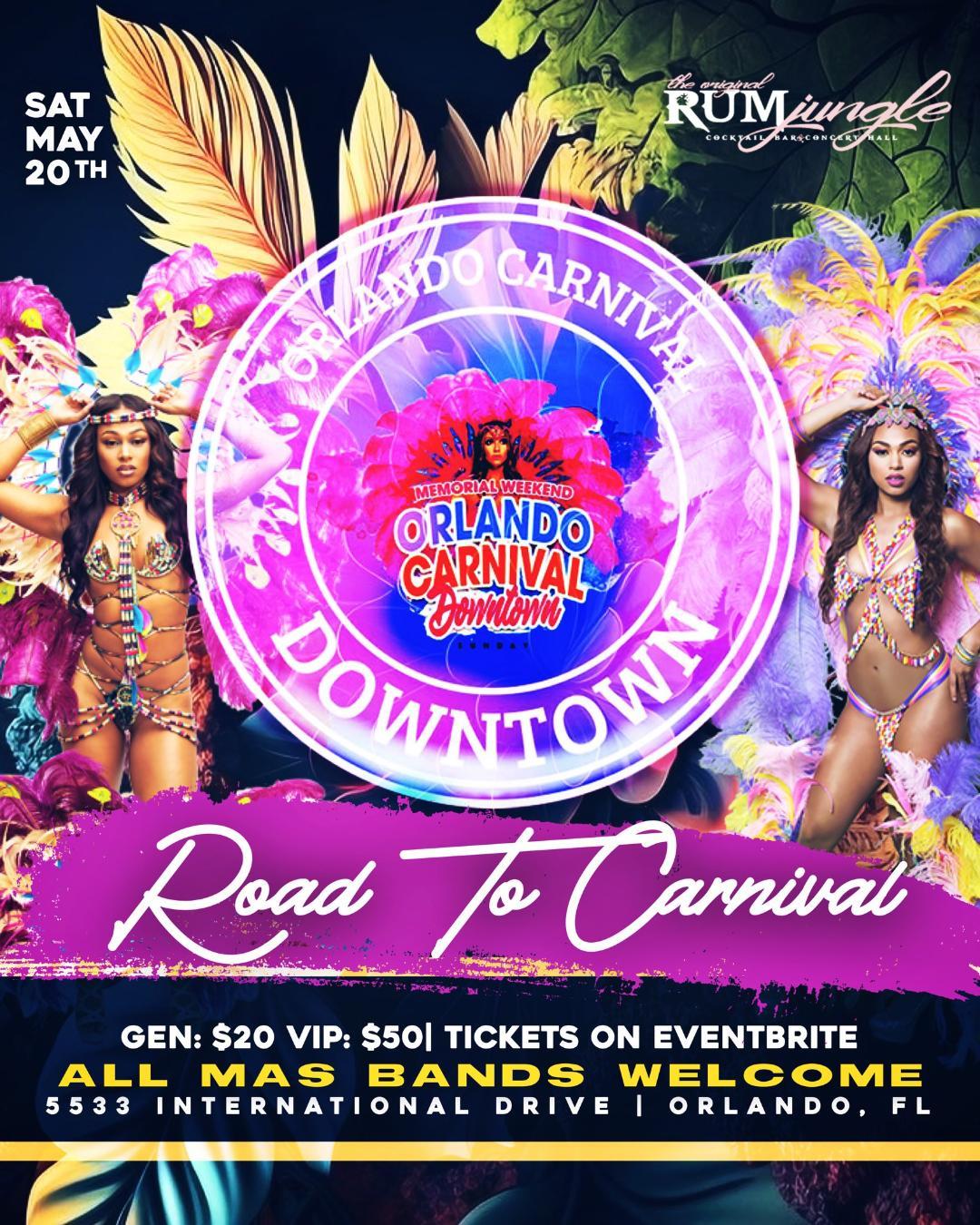
www.caribbeanamericanpassport.com 6
T
THE BIRTHRIGHT OF EVERY INDIVIDUAL
Apostle Dr. S. Regina Pierre Robertson New Dimensions Global

The aftermath of a world-wide deadly pandemic known as COVID-19 with its tentacles of social isolation, fear, uncertainty, anxiety, depression, abandonment, and the unequal distribution of resources, to name a few, further exacerbated an already tenuous environment in which man continues to question the validity of his existence on this earth. America is no exception to this experience. Within the backdrop of heightened levels of stress and mental dis-ease, we as a people were faced with the loss of what was accepted as “normal,” and ushered into that which is now referred to as “the new normal.” However, as many have come to understand, that which is characterized to be normal should never be envisioned as a fixed situation, since normal changes from time to time and from place to place. Consequently, normal in one culture and geographic location can be regarded as being totally offensive and abnormal behavior in another. For this reason, we are finding it wise to learn something about culture and mores before deciding to travel, and this is so even within the country in which we reside. It’s called wisdom and she is needed because mindsets have shifted, times have changed, and so have individuals and groups.
However, during periods of flux and uncertainty, it is imperative for each one to understands that “Mental health is not just an issue for the health sector because it is also related to equality and basic individual rights” (Amina J Mohammed, Deputy Secretary-General of the UN). The genesis of this statement is derived from a truth which records that man arrived on this earth with certain inalienable rights that are impossible to alter. Hence, let not your heart be troubled because in Genesis 1 vs 26 it is written, “Then God said, let Us make man according to Our image, according to Our likeness; let them have dominion….” And in vs:28 “Then God blessed them, and God said to them be fruitful and multiply; fill the earth and subdue it; have dominion over the fish of the sea, over the birds of the air, and over every living thing that moves on the earth” (KJV). In Ps. 8:6 we note that “You have made him to have dominion over the works of Your hands; You have put all things under his feet” (KJV). All of this is to say that you have the right to live a fulfilled life no matter where your designated place of entry occurred;
you came through that place because it was chosen to be your focal point of entry. Having arrived preloaded with all that is required or necessary to fulfill your Divine mission, you’re here to make a difference by providing the answer to a problem you were sent to solve. You are power-full, you have the capacity, the tenacity to dominate not to be dominated, and become your real and authentic self. This self evolves regardless of time, space, or season. You are who the Creator fashioned you to be. After all, who or what can stop you. He blew the substance of His reality, His genius into you.
Yet, before your arrival at this location there is a preparedness, a transformative course of action that was predesigned for you. There is no way around, under or over it. These series of circumstances, issues, and trials, as painful as they may be, are meant to develop strengths, tenacity, and the where with all to successfully complete your assigned mission. Therefore, “… after that you have suffered a while, make you perfect, establish, strengthen, settle you” (1Peter 5:10 KJV). In this manner, your birthright and mental health are intimately knitted together and cannot be separated. Having said this, it is important to note that in many countries, individuals, families, and communities are confronted with countless forms of injustice, the continued usage of failed policies and poor governance which manifest as the inaccessibility to minimal or no health care opportunities, food insecurities, poverty, lack of educational entrance, gender-based violence toward women and girls, and many other forms of inequity.
No one ever said that this would be an easy undertaking, for we are cognizant of the fact that when mental equity is positioned as a moral and economic imperative, a sound mind becomes more adept at envisioning and working collaboratively to ensure that mental equity becomes the birthright of everyone, everywhere in the Global Village. Furthermore, it is well known that the prosperity of a nation is tied to the mental wellness of its people. With all this knowledge and information, we, as a people are confronted with numbers that continue to rise unfavorably. For example, peeking into the Global Village, we find that:
WHY MENTAL HEALTH AWARENESS MONTH: BECAUSE GOOD MENTAL HEALTH IS
Dietel's commitment to excellence has earned him numerous accolades and awards over the years, including being named one of the "Top 25 Event Planners in North America" by Special Events Magazine. He is also an active member of the National Association of Catering and Events (NACE) and has served as the president of the NACE Orlando chapter.
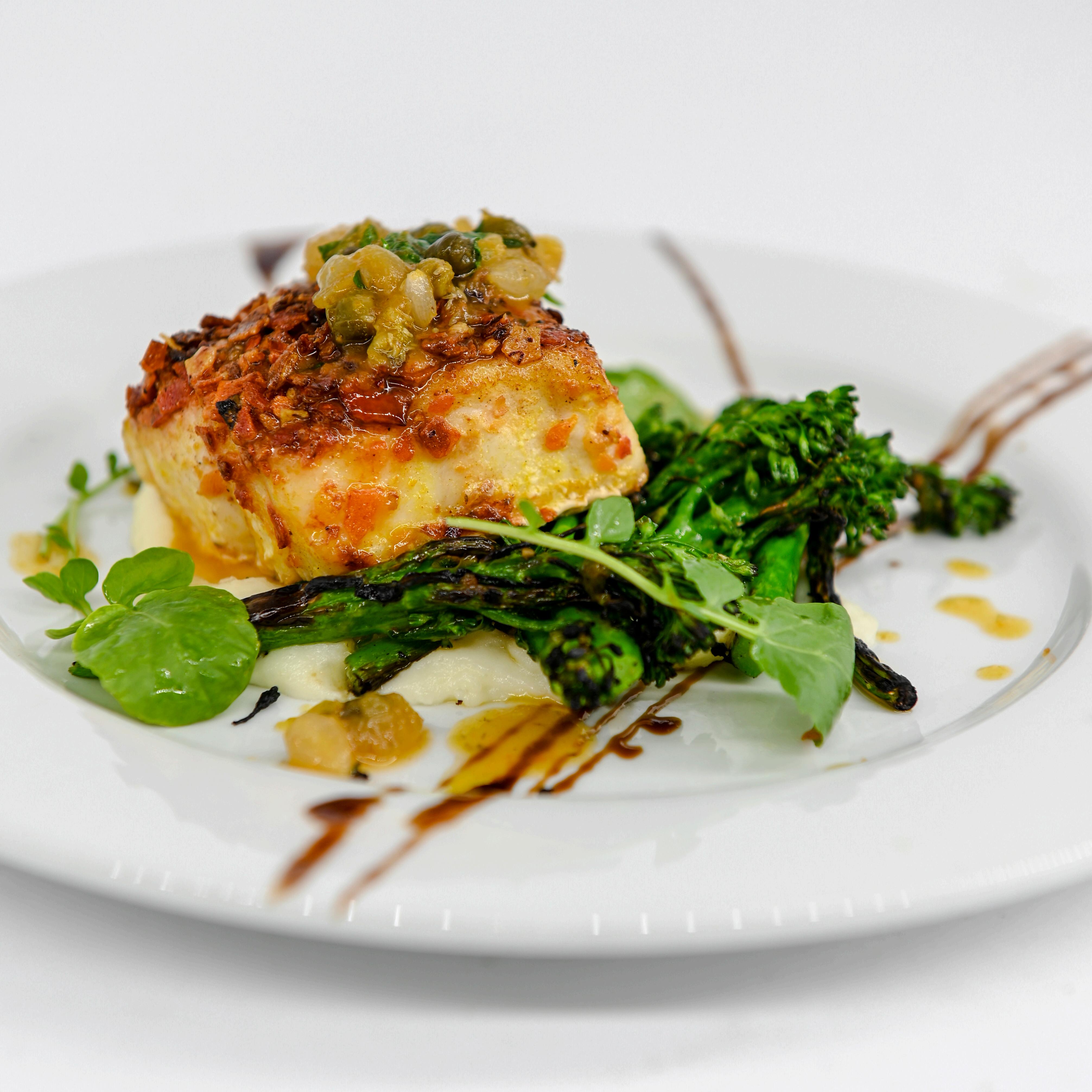
In addition to his work with Puff & Stuff Orlando, Dietel is also involved in a number of philanthropic efforts in the community. He has worked with organizations such as Second Harvest Food Bank, the American Heart Association, and the Boys & Girls Clubs of America to help make a positive impact on the lives of others.
Overall, Warren Dietel is a true leader in the hospitality industry, known for his commitment to excellence, innovation, and sustainability. Through his work with Puff & Stuff Orlando and his philanthropic efforts in the community, he has made a lasting impact on the lives of countless individuals and businesses, and his legacy will continue to inspire future generations of hospitality professionals.


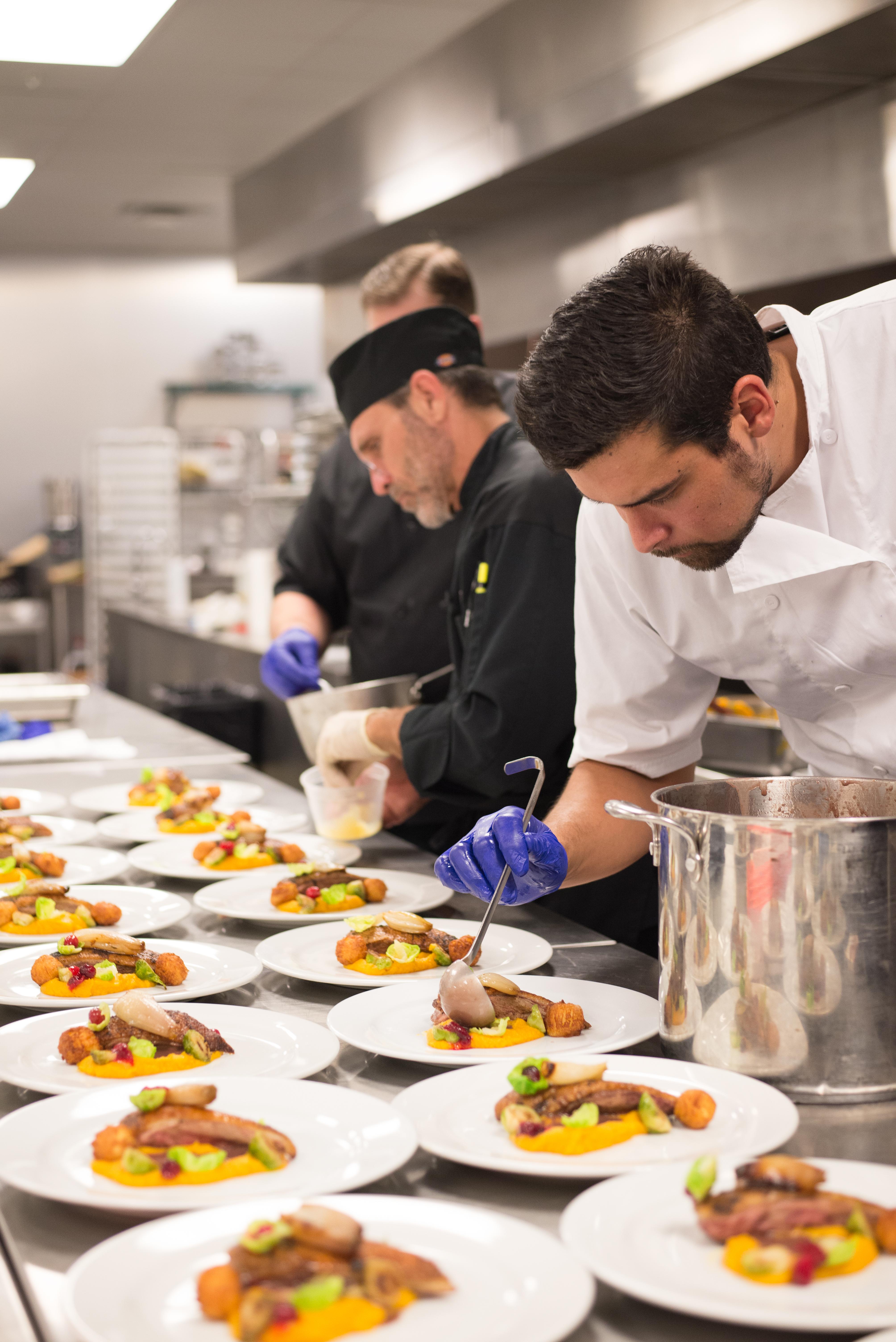
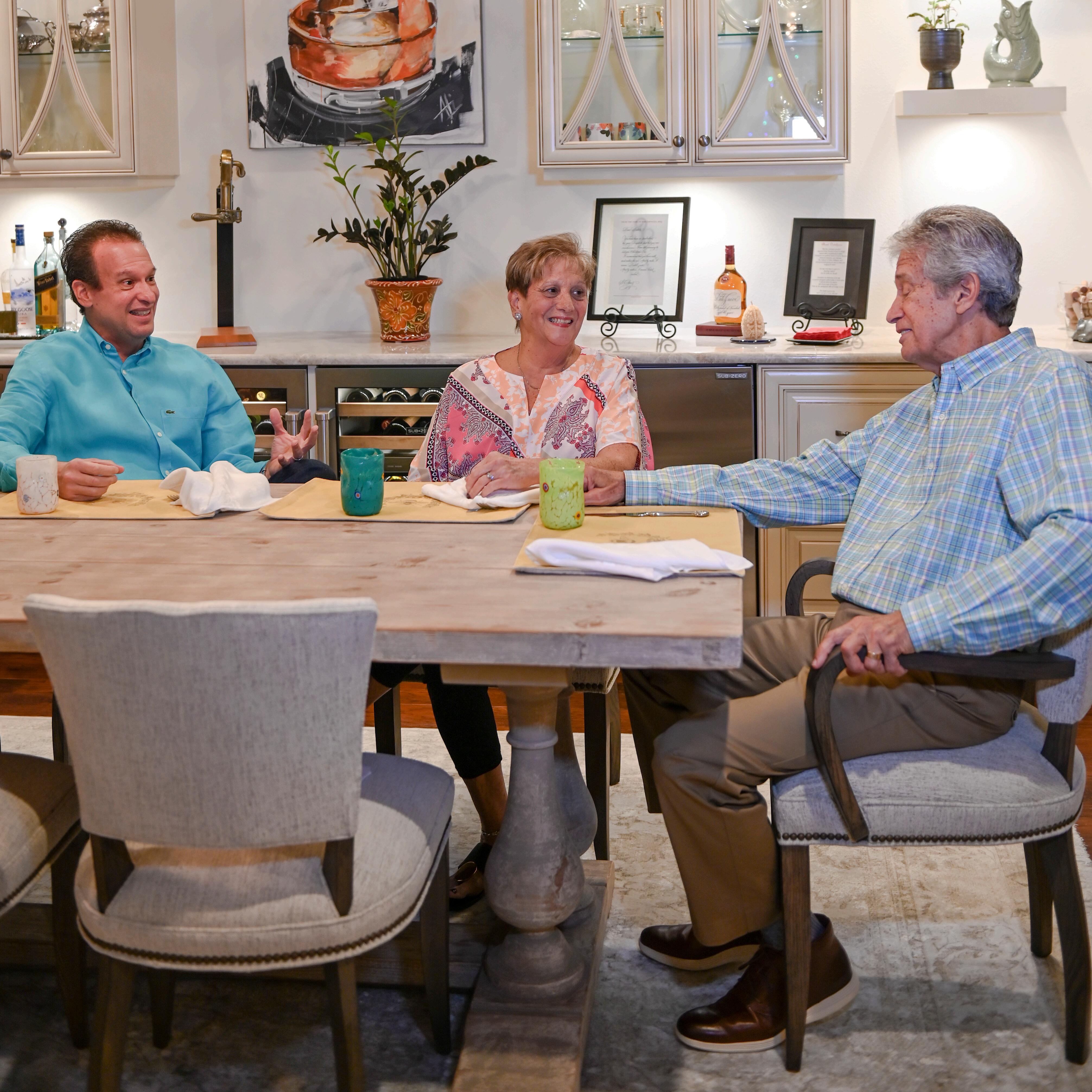

9 www.caribbeanamericanpassport.com
Cont.
1
Puff & Stuff..
from pg
Political Engagement and Understanding your role, as an individual, in both local and National Elections
Political engagement is crucial to the functioning of any democratic society. It is a way for individuals to make their voices heard and participate in the decision-making processes that shape their lives. Including both local and national elections, which provide opportunities for citizens to engage with the political system in different ways. One of the most important aspects of political engagement is understanding your role and responsibility. This involves knowing the candidates, understanding the issues at stake, and being informed about the political process. Local elections are often overlooked, but they are critical to the functioning of any community. They include races for city council, school board, and other local offices, and have a direct impact on the everyday lives of citizens. To engage in local elections, individuals must understand the issues at stake and research the candidates running for office. Get involved in local elections, attend candidate forums and debates, ask questions and learn more about the candidates and their positions. It is also important to read local news and attend community events to stay informed about the issues affecting the community.
National elections, these elections have far-reaching implications for the country and its citizens, and individuals must be informed about the candidates and the issues at stake to make informed decisions when casting their vote. Vote...Vote...Vote.
Attend political rallies and events, watch national debates, and read news sources to stay informed about the candidates and their positions. It is also important to engage in conversations with others and be willing to listen to different perspectives to better understand the issues at hand, but do your own research and get to know the candidates.
Political engagement involves being an informed citizen who understands the issues and is willing to participate in the political process. This includes contacting elected officials, attending community meetings, and volunteering for political campaigns.
Contact your elected officials, express your opinions on issues that are important and hold the elected officials accountable.
Political engagement is critical to the functioning of any democratic society. As individuals, we have a responsibility to understand our role in both local and national elections and to engage in the political process in meaningful ways. This includes being informed about the issues, attending events, contacting elected officials, and volunteering for political campaigns. By being engaged citizens, we can work together to build a better future for ourselves and our communities. Every year, more and more, we are seeing directly how the issues can directly impact our lives and the survival of our diverse communities.
America is the home of cultural, political and social diversity

www.caribbeanamericanpassport.com 10



12 www.caribbeanamericanpassport.com
CAFA Fusion 2023
In April 2023, the charming city of Kissimmee, Florida, played host to an extraordinary event that brought together artists, performers, and art enthusiasts from all over the world—the CAFA Fusion. This unique celebration of art and culture showcased the diverse talents and creative expressions of individuals, captivating the hearts and minds of attendees.
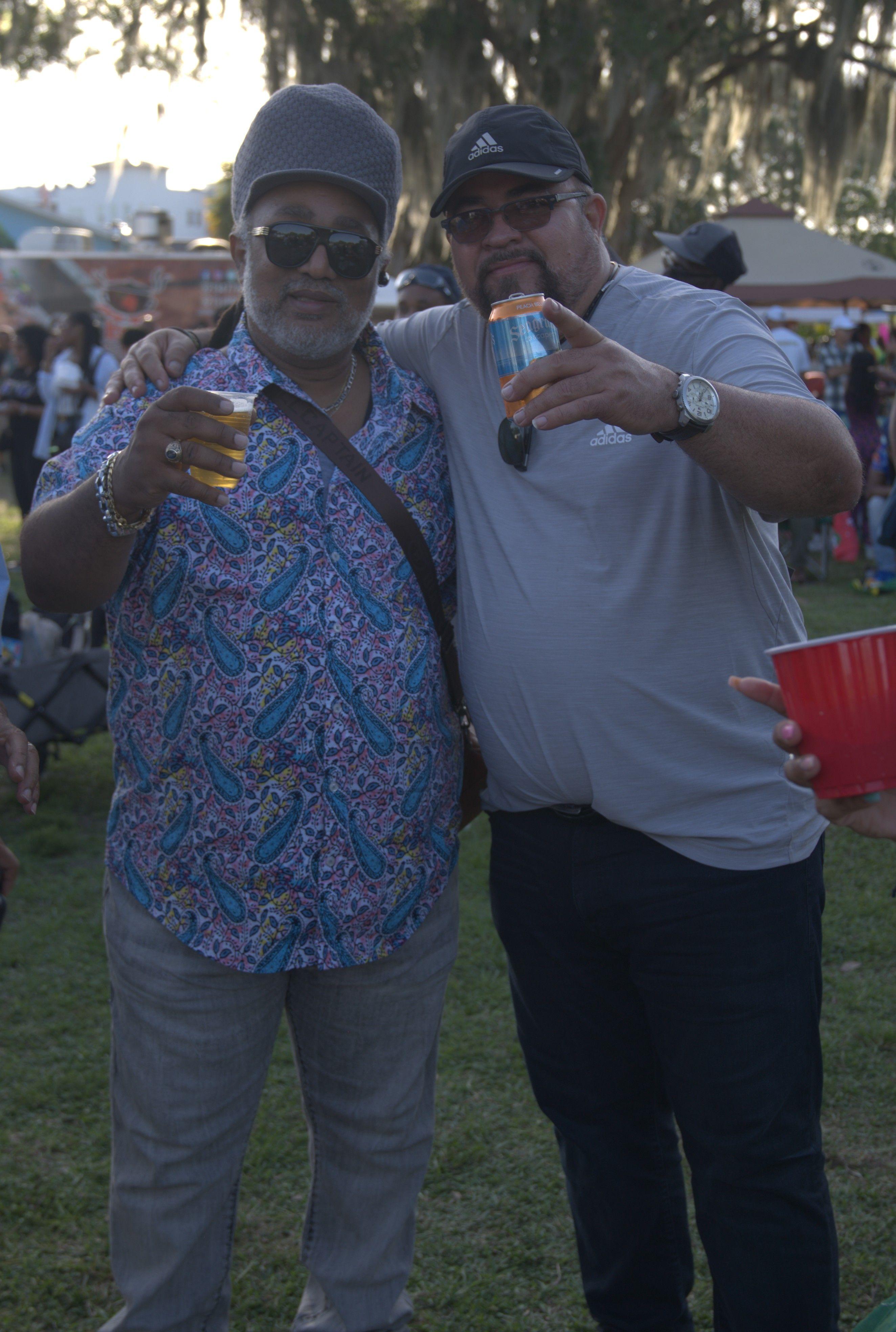

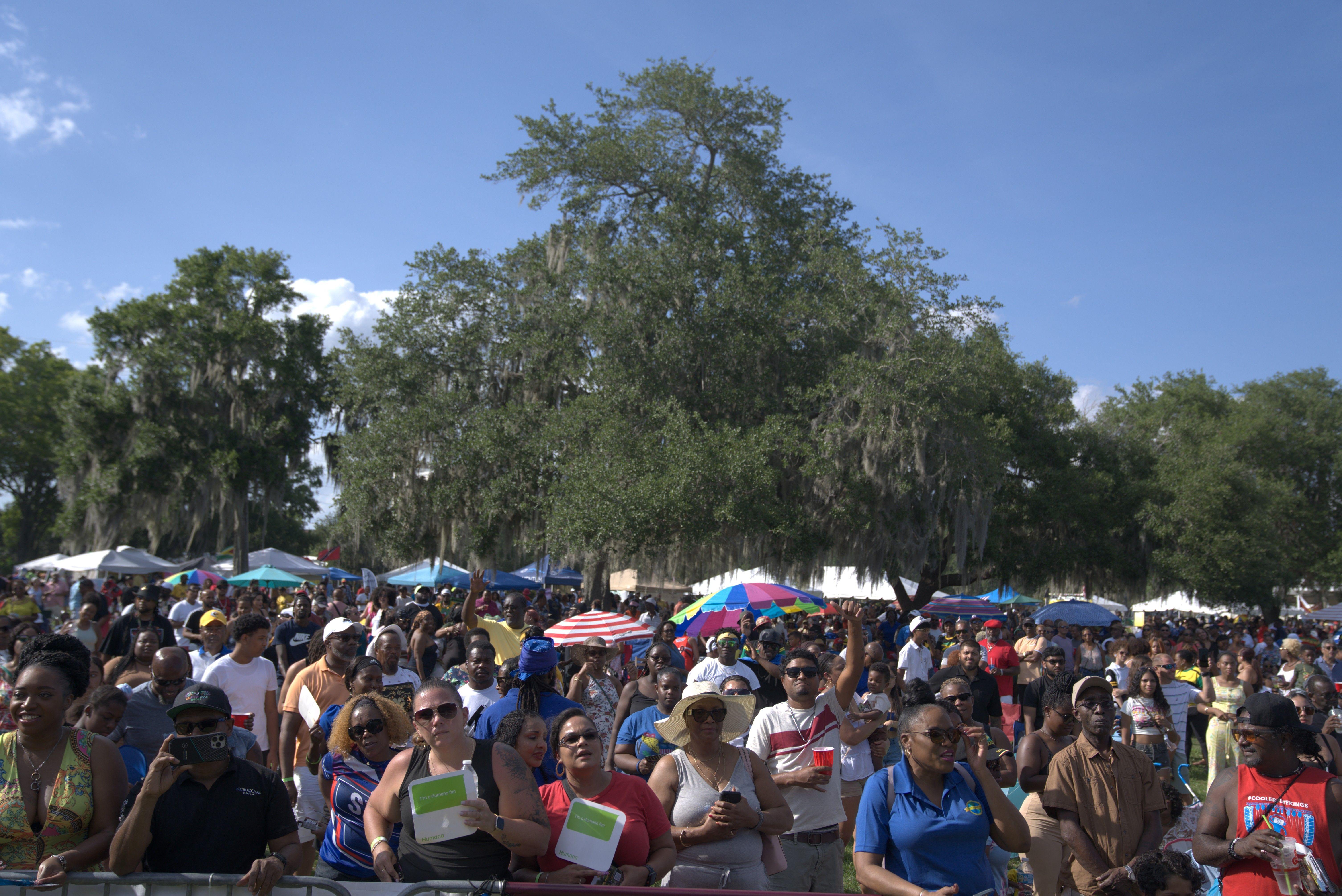
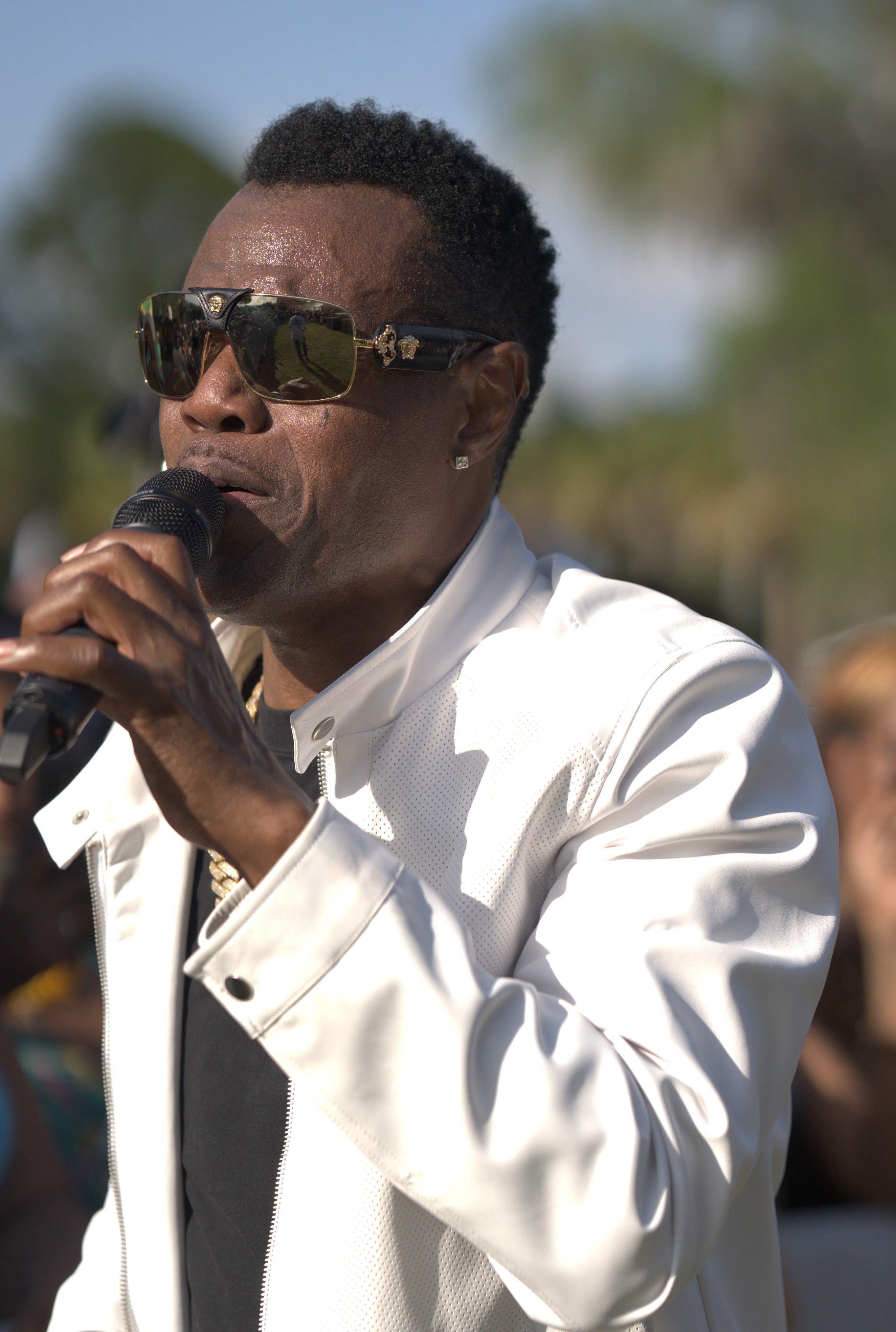
CAFA Fusion, short for Central Florida Art Fusion, was a captivating blend of visual arts, performing arts, and cultural exhibitions. The event aimed to promote cultural exchange, inspire creativity, and foster a deeper appreciation for the arts. With a dynamic lineup of activities and a vibrant atmosphere, CAFA Fusion offered a rich and immersive experience for all who attended.
The focal point of CAFA Fusion was the art exhibition, where a wide array of artworks, ranging from paintings and sculptures to mixed media and digital art, were on display. Artists from various backgrounds and styles showcased their creations, providing a platform for emerging talents and established names alike to share their visions with a captivated audience.
The festival also featured engaging performances, including live music, dance shows, theater acts, and spoken word performances. These captivating displays of talent entertained and enthralled spectators, showcasing the power of creativity and artistic expression.
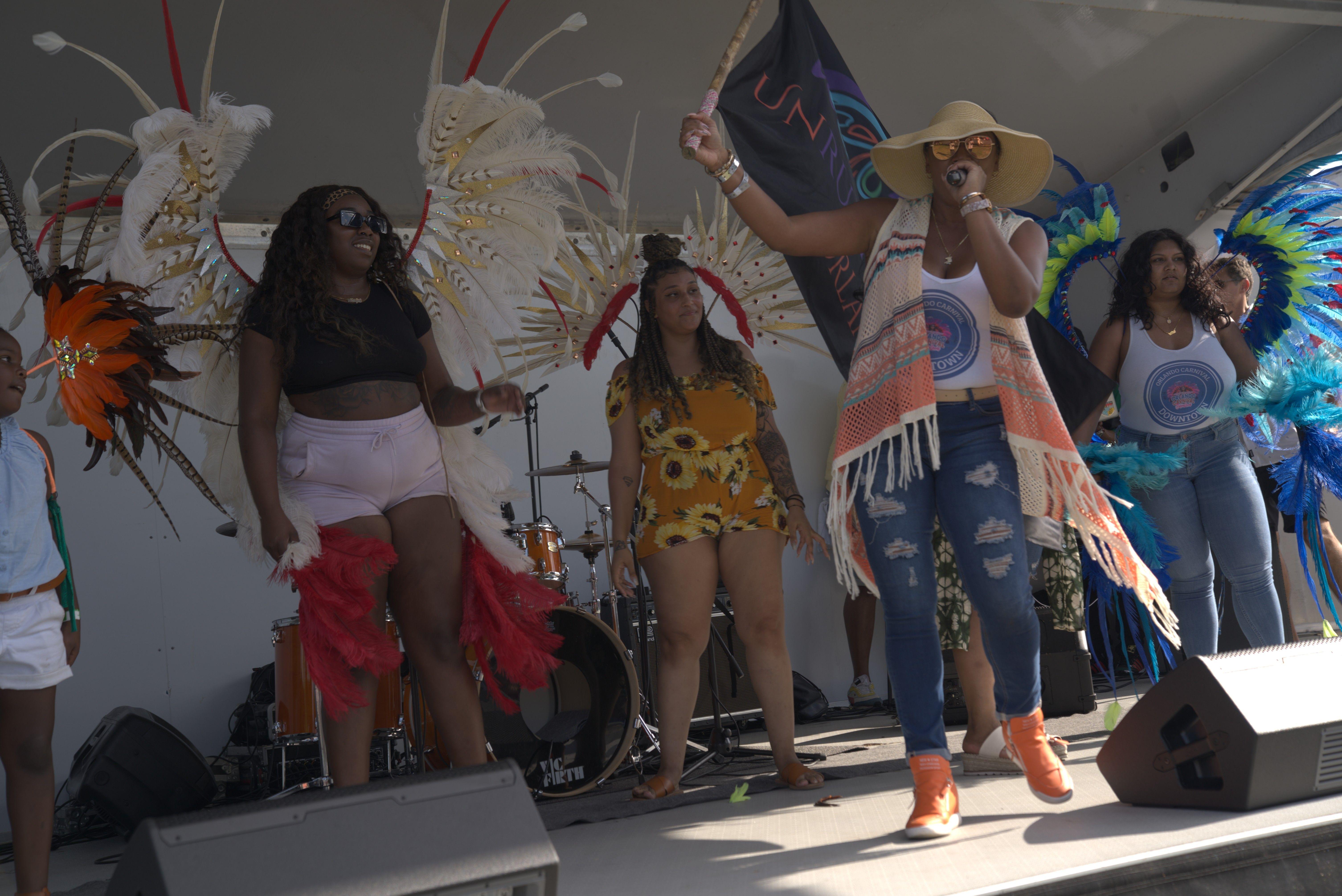
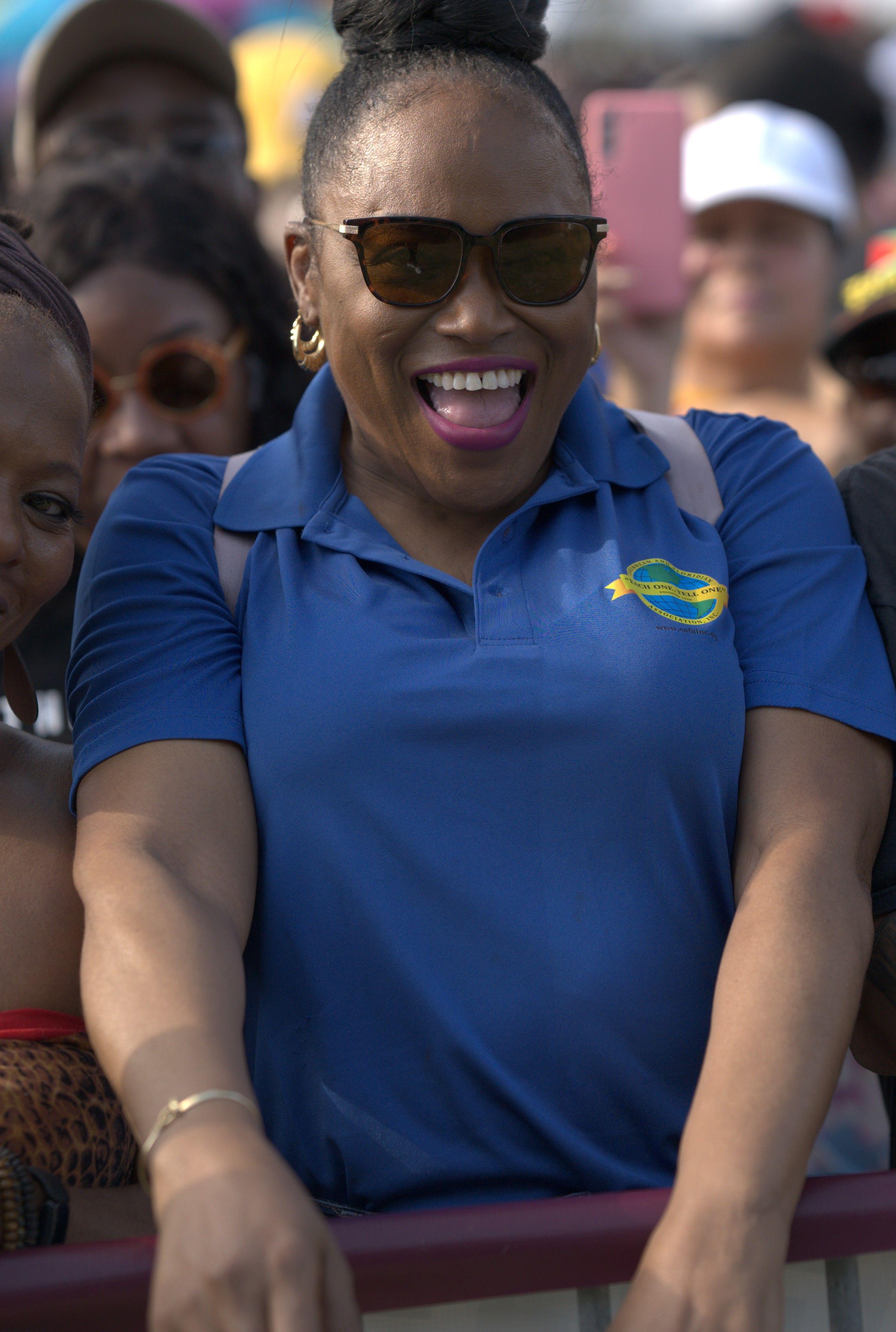
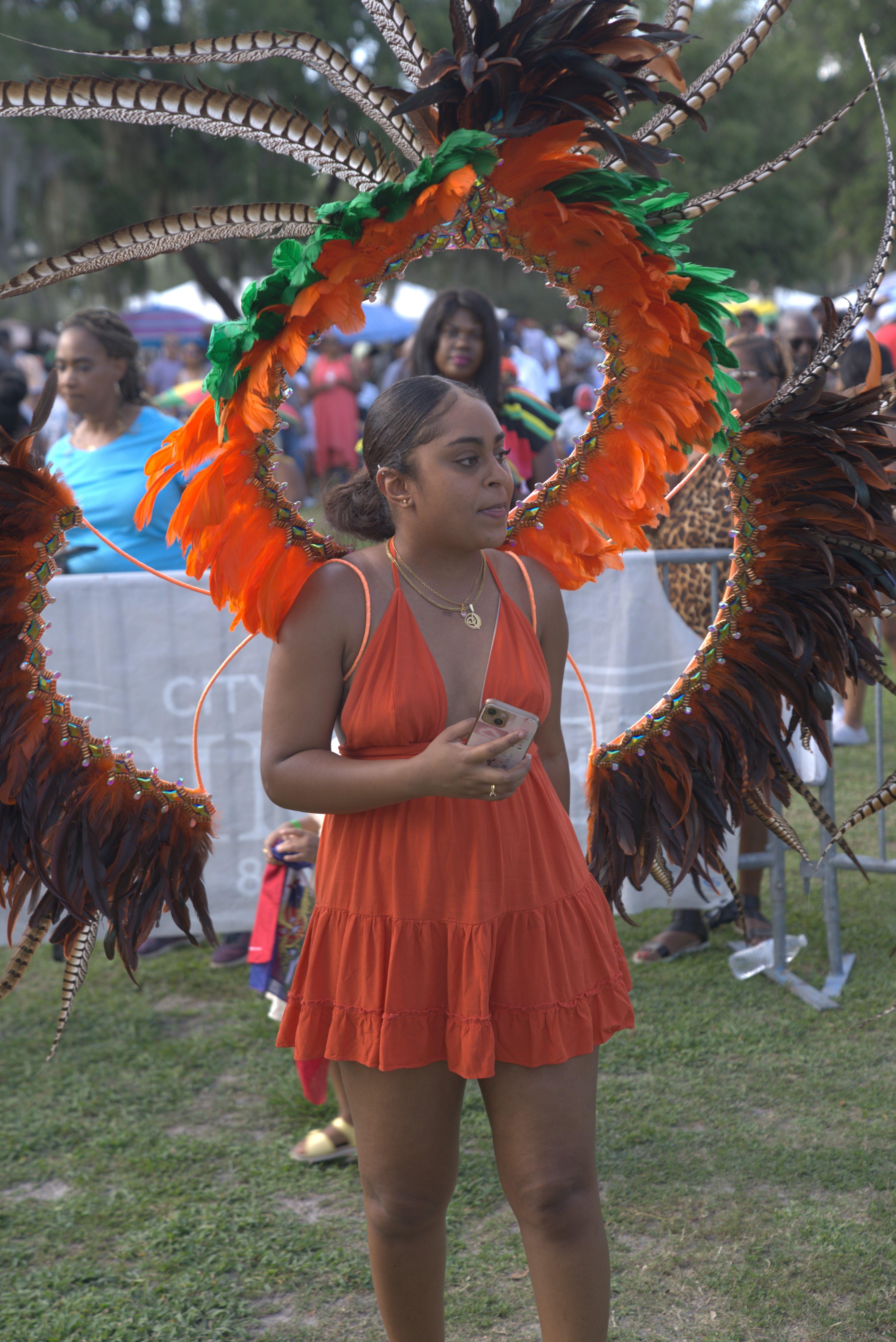
One of the highlights of CAFA Fusion was the cultural exhibitions, which offered visitors a glimpse into different cultures from around the world. Traditional crafts, costumes, culinary delights, and interactive displays allowed attendees to immerse themselves in the vibrant tapestry of global diversity, fostering understanding and appreciation for different cultural traditions.
In addition to the exhibitions and performances, CAFA Fusion organized workshops and interactive sessions, where attendees could engage directly with artists, learn new techniques, and explore their own creative potential. These hands-on experiences provided valuable opportunities for artistic growth and collaboration.
CAFA Fusion not only celebrated the arts but also contributed to the local community. The event collaborated with local businesses and organizations, creating a positive economic impact and supporting the growth of the arts scene in Kissimmee and the surrounding region.
In conclusion, CAFA Fusion in Kissimmee, Florida, in April 2023 was a resounding success, uniting artists, performers, and art enthusiasts in a celebration of creativity and culture. Through its diverse range of exhibitions, performances, and interactive experiences, the event left a lasting impression on attendees, inspiring artistic exploration and fostering a deeper appreciation for the arts. CAFA Fusion undoubtedly reinforced Kissimmee's status as a vibrant hub for artistic expression and cultural exchange.
13 www.caribbeanamericanpassport.com
Racism and Bias in the Healthcare System
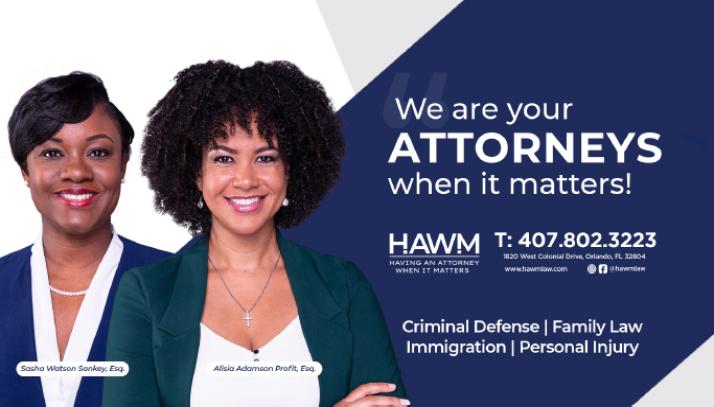
Healthcare is a fundamental human right, and access to quality healthcare services should be available to everyone, regardless of their race or ethnicity. However, systemic racism and bias in healthcare have long been a pervasive issue, leading to disparities in healthcare outcomes for different racial and ethnic groups. This article will explore the impact of racism and bias in healthcare and suggest ways to address and mitigate these issues.
Racism and bias in healthcare refer to discriminatory practices or attitudes towards individuals based on their race or ethnicity. It can manifest in various forms, such as healthcare providers assuming that patients from certain racial or ethnic backgrounds are more likely to have certain health conditions or assuming that patients from certain backgrounds are less likely to comply with treatment plans. These biases can affect the quality of care that patients receive and can lead to poorer health outcomes.
One of the most significant impacts of racism and bias in healthcare is the disparities in healthcare outcomes for different racial and ethnic groups. For example, Black Americans are more likely to die from heart disease, cancer, and other chronic illnesses than white Americans. Native Americans and Alaska Natives have higher rates of diabetes and heart disease than the general population. These disparities are not due to biological differences between races but are a result of social and economic factors, including poverty, lack of access to healthcare, and discrimination.
Racism and bias in healthcare can also affect patientprovider relationships. Patients from racial and ethnic minority groups may feel mistrustful of healthcare providers due to historical and current discrimination in healthcare. This mistrust can lead to patients delaying or avoiding seeking medical care, which can worsen their health outcomes. To address racism and bias in healthcare, healthcare providers must first acknowledge and recognize that these issues exist.
They can do this by educating themselves on the impact of racism and bias on healthcare outcomes and by examining their own biases and assumptions. Healthcare providers can also work towards creating a more diverse and inclusive healthcare workforce that is reflective of the communities they serve. This can help improve patientprovider relationships and promote greater trust between patients and healthcare providers.
Another way to address racism and bias in healthcare is by providing cultural competency training to healthcare providers. This training can help healthcare providers understand the cultural and linguistic needs of their patients and how to provide care that is sensitive to these needs. Healthcare providers can also work towards improving access to healthcare services for racial and ethnic minority groups, such as providing interpreter services and offering healthcare services in multiple languages.
Healthcare organizations can also play a significant role in addressing racism and bias in healthcare. They can work towards creating policies and procedures that promote diversity, equity, and inclusion in healthcare. This can include diversifying their workforce, ensuring that patients receive care that is culturally sensitive and responsive to their needs, and implementing quality improvement initiatives that focus on reducing healthcare disparities.
Racism and bias in healthcare are pervasive issues that have significant impacts on healthcare outcomes and patientprovider relationships. Healthcare providers must work towards addressing and mitigating these issues by recognizing and acknowledging their existence, providing cultural competency training to healthcare providers, improving access to healthcare services for racial and ethnic minority groups, and creating policies and procedures that promote diversity, equity, and inclusion in healthcare. We can create a healthcare system that is truly equitable and provides quality care to all.
16 www.caribbeanamericanpassport.com
A new Assignment for Rosemarie Roth
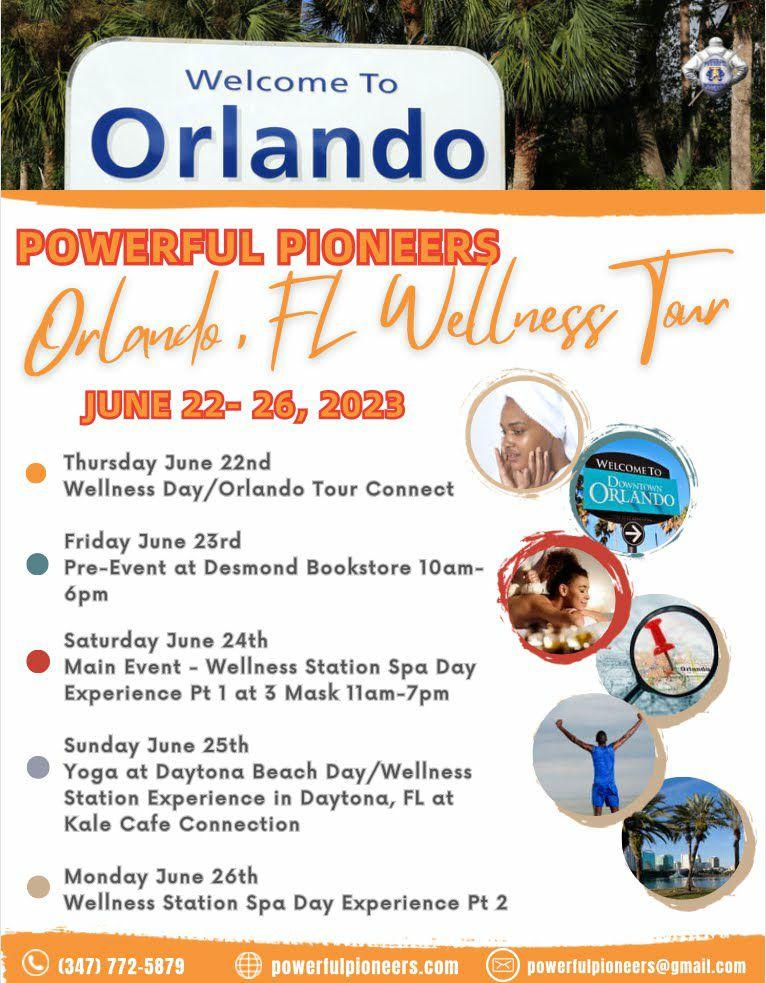
Many folks wait until the new year for resolutions, but Rosemarie Roth will accept a challenge when she is assigned to a new task anytime of the year.
Her recent assignment is to be the Community Outreach Director for the Jamaica Global Diaspora. She says that she laughed when the Global Representative, Hon. Peter Gracey asked her to head that department. She later called him and accepted the position because it was certainly a job description she knows well.
Mr. Gracey says, “Rosemarie will be responsible for leading the implementation of outreach initiatives for the Central Florida community and various organizations. In addition, she will ensure that all areas operate consistently and ethically within the mission and values of the Jamaican diaspora to enhance community engagement.”

This new assignment is another step-up on an invisible ladder for her to serve this community. In June 1994, she incorporated a ministry she affectionately calls Alpha Point. This ministry represents her personal need to facilitate resources for those seeking to empower their lives. The initial outreach offered free clothes and groceries. As time and resources increased, free weddings and funerals with baby showers became a staple for the community. Her mission trips to Jamaica distributed blessings from the bunties of the store house to those less fortunate.
She was the first woman of color to head a national organ donation foundation and was in office when “organ donor” went on our driver’s license in 1991 in Florida.
In her words, “educating the Caribbean community about organ donations will save many lives”.
As I was about to think that this woman was simply doing a good job, I was reminded that she presently holds the office of president for the Jamaican Cultural Connection for the past three years. This position allows her to connect with likeminded Jamaicans to share the culture of home in the United States and to help those in need.
As the new appointed Community Outreach Director, she says that she will work in the field with businesses, churches, schools, non-profit organizations, civic organizations and the community-at-large in raising awareness of the Jamaican diaspora in the community and then emphasize available resources.
“My job is to create campaigns and build the capacity of community organizations to promote the organization of the diaspora to a level of sight recognition.” Chimed Rosemarie with a smile.
In carrying out this mission, she believes that being the director of outreach will improve community knowledge of the diaspora, establish, and increase participation in cultural initiatives, and serve as liaison between the citizens and the government back home. She smiled as she speaks of her understanding of the job description and says she is ready for the challenge. Her strength, she points out, is to create events where information is freely given.
Thus, creating an environment for relationship and economic development.
We at Caribbean American Passport agrees with Mr. Fedy Arscott when he said, “Rosemarie Roth assume roles, before she claims titles, therefore, transition is never as issue; congratulations.”

14 www.caribbeanamericanpassport.com
Putdown, Respond Or Shut-up
By Tony Deyal
To my friend and colleague Glen Singh, who, like me, does everything not by the book but by the books Many, many years ago, a type of trousers called a ‘Sister Boy’ reached the Caribbean market. The difference between the ‘Sister Boy’ and other pants was that it had a short, ornamental, buckled belt at the back. Seeing a schoolmate wearing one, I said to him, in the presence of the multitude waiting for the bus, “I like your sister boy!” I had to duck, both from the blow and the description of the anatomical riches of my mother which followed.
One of my neighbours incurred the wrath of her sister by responding with the typical Trinidad expression “Oh Hoh!” which threatens as in “You better watch your step with me you hear, oh hoh!’ The younger sister was upset and shouted at her older sister, who was in the kitchen, “Don’t ever take my money again, otherwise I will deal with you, oh hoh!” The incensed big sister ran out of the kitchen armed with a large pot spoon and advanced on the younger one, shouting, “Who you calling a ho?” The only response that would have made it worse would have been the mannerly, “I’m sorry you were offended when I called you a hoe. I didn’t know it was a secret.”
In Britain , politicians and insults are synonymous. They have honed and refined the art over centuries of heated debate. The best of them was Winston Churchill. When told by a member of parliament, Bessie Braddock, that he was drunk, Churchill replied, “And you, Madam, are ugly. But I shall be sober in the morning.” When Lady Astor was opposed by Churchill on the issue of women’s rights, she was so angry that she snapped, “Winston, if I were married to you, I would put poison in your coffee.” He retorted immediately, “And, if you were my wife, I’d drink it.” When famous Glasgow journalist, Harry Diamond, was a young reporter in Parliament, he met Churchill in the corridor and whispered very quietly, “Excuse me, sir. I hope you won’t mind me mentioning it ... er ... it will save you some embarrassment but your fly is open.” Churchill came back with, “My boy, there is no harm in leaving open the door of the cage when the bird is dead.”
CHURCHILL PUTDOWN
My favourite Churchill putdown was, when told by an opponent that he would either die of the “pox” or be hanged, he responded, “That depends on whether I embrace your mistress or your principles.” My final Churchill in this article is a wicked counterpunch. The famous playwright George Bernard Shaw invited Churchill to the first night of his newest play, enclosing two tickets: “One for yourself and one for a friend – if you have one.” Churchill wrote back saying he couldn’t make it but asked for tickets for the second night – “if there is one”.
While most Caribbean politicians are into name-calling, and, in some countries, ethnic slurs and even threats, the hallmarks of international parliaments and senates are sledging and quick, lethal responses. David Lloyd George, British Liberal prime minister, once said of an opponent. “He has sat so long upon the fence that the iron has entered his soul.” He also maintained that, when Herbert Samuel (another opponent) was circumcised “they threw away the wrong bit”. F.E. Smith, a former Lord High Chancellor of Britain, was taunting Lord Hewart, a writer, about the size of his
Hewart shot back with, "if its a boy I'll call it John. If it's a girl, I'll call it Mary. But if, as I suspect, it's only wind, I'll call it F.E. Smith.AC
In the US, when Governor Adlai Stevenson was going up against President Eisenhower, one of his strong supporters reassured him, “Governor, every thinking person will be voting for you.” Stevenson countered, “Madam, that’s not enough. I need a majority.” During a debate, his opponent Stephen Douglas called Abraham Lincoln “two-faced”. Lincoln countered, “I leave it to my audience. If I had another face, do you think I would wear this one?” Also, in the US, when Reverend Edward Everett Hale was chaplain of the US Senate, he was asked if he prayed for the senators. He came up with a quick “No!” and then added, “I look at the senators and pray for the country.” This is what all of us Caribbean people should do night and day, and not just restrict our prayers to senators but also include politicians and police.
NO-NONSENSE NOTE
I thought about this article when someone I had sent a clear, nononsense note about my rights tried to embarrass me with, “You are a writer, so you obviously love to write.” I immediately declared, “I am a writer and I do love to write. Unlike you, I won’t tell you what you are and what you might love to do.” I wish I could have commented like pianist/comedian Victor Borge’s about Mozart, “He was happily married but his wife wasn’t.” Maybe I could have tried a Pierre Trudeau. When the Canadian prime minister heard that Richard Nixon insulted him, the response was, “I’ve been called worse things by better men.” US President George Bush Sr got a place in The Nasty Quote Book with, “Being attacked on character by Governor Clinton is like being called ugly by a frog.” Some politicians are even sharper. When US Senator Slade Gorton told comedian Carl Grant, “You’re a comedian, tell us a joke.” Grant quickly countered, “You’re a politician, tell us a lie.” Gorton was extremely quick on the draw with “I did when I called you a comedian.”
So, what do you do when someone deliberately tries to embarrass you? You can reply, “Someday you’ll go far.” Then add, “And I really hope you stay there.” Another useful response is, “Oh, I’m sorry that the middle of my sentence interrupted the beginning of yours.” You can also try, “I’m sorry for talking while you were interrupting. Please go first.” There are a few people I would like to tell, “I am returning your nose. I found it in my business.”
However, I prefer to stick to the politicians and how well they dealt with one another. Australian Prime Minister Bob Hawke said of Malcolm Fraser, the person he replaced, “He is the cutlery man of Australian politics. He was born with a silver spoon in his mouth, speaks with a forked tongue, and knifes colleagues in the back.” Whenever I read something like this, I am reminded of what Oscar Wilde, the Irish poet and playwright, said to his friend Whistler, the artiste who had brought down the house with a truly scintillating remark. “l wish I had said that!” said Wilde. Whistler laughed and came back with, “You will, Oscar, you will!”
*Tony Deyal was last seen repeating a quote that could be true of all Caribbean politicians, “He did not care in which direction the car was travelling, so long as he remained in the driver’s seat.”
www.caribbeanamericanpassport.com 15
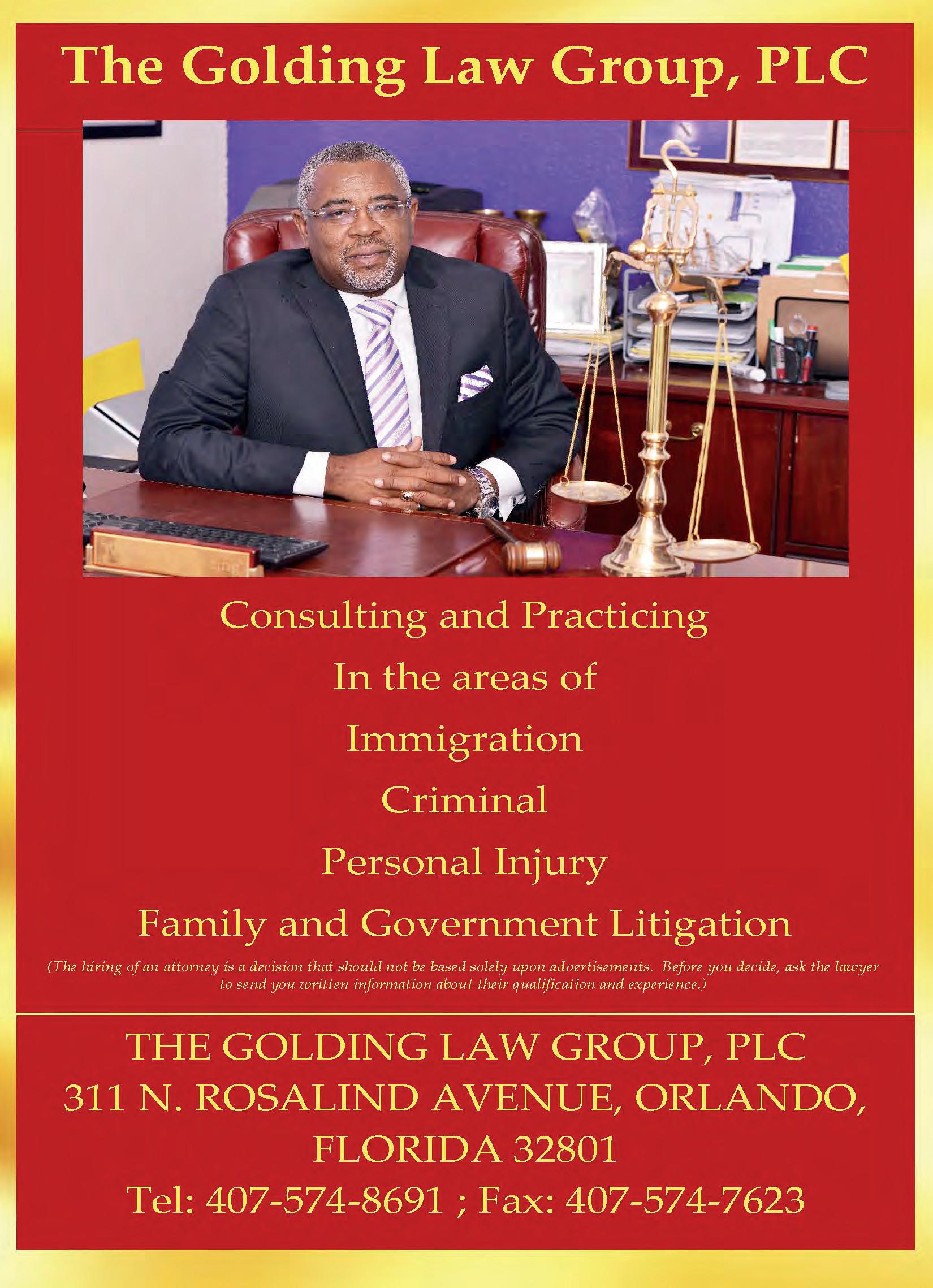
7 www.caribbeanamericanpassport.com
